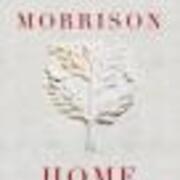The African American experience spans four centuries, from the initial settlement of North America by Europeans and the establishment of the trans-Atlantic slave trade, to the present day. This interdisciplinary course examines the social thought, cultural mores, religious institutions, intellectual history, political challenges, literary traditions and expressive arts of people of African descent in the Americas. Among the focal points are the centrality of the African American experience to important legal, historical, political, and cultural developments in the formation of the United States, and the acts of self-making or self-fashioning that African Americans performed in response to difficult odds and circumstances. The course surveys African-American subjectivities and the social construction of black life from slavery to the present from historical, sociological, political and literary perspectives. This can include, for example, close readings of slave narratives and women’s autobiography, visual analysis of Harlem Renaissance art production, examinations of Blacks Arts poetry and manifestos, unpacking of African-American spirituals and jazz laments, interrogation of the Prison Industrial Complex and its affect on African-American life, discussions on the intersections of hip hop music and philosophy, and study of the American presidency.
Course Materials:
Required Texts:
Gates, Henry Louis, and Valerie A. Smith. The Norton Anthology of African American Literature. Third ed. New York: W.W. Norton & Company, 2014.
Johnson, Shelton. Gloryland: A Novel. San Francisco; Berkeley, Calif.: Sierra Club Books; Distributed by Publishers Group West, 2009.
Morrison, Toni. Home. First Vintage International ed. New York: Vintage International, 2013; 2012.
Thomas, Hank Willis, René De Guzman, and Robin D. G. Kelley. Pitch Blackness. New York: Aperture, 2008.
Additional required readings available on CANVAS


